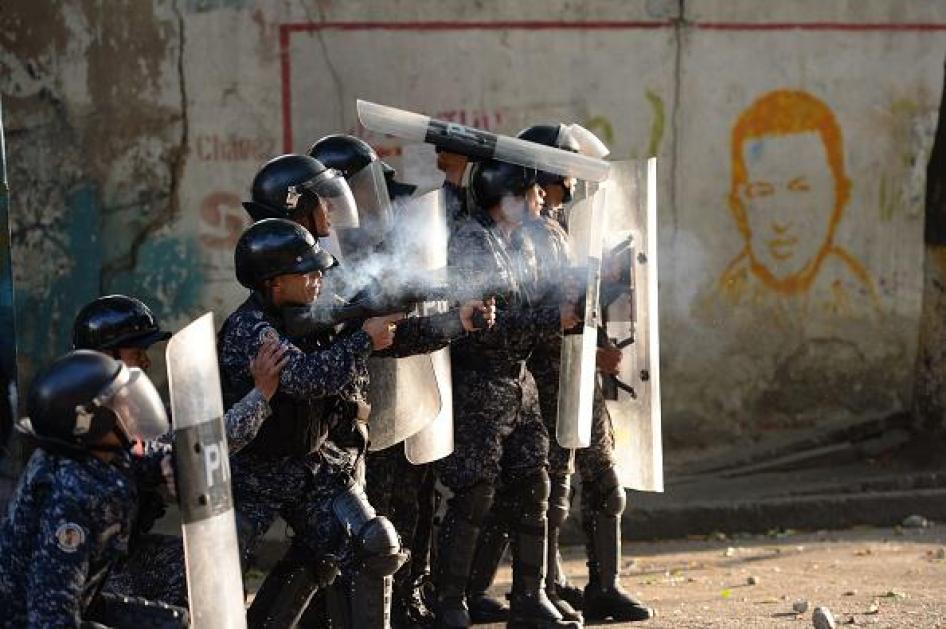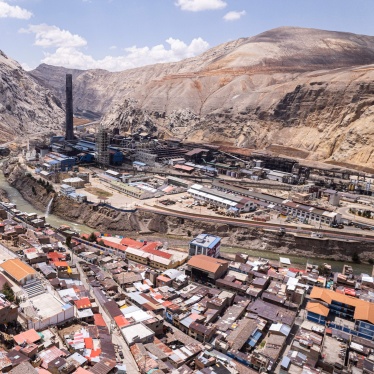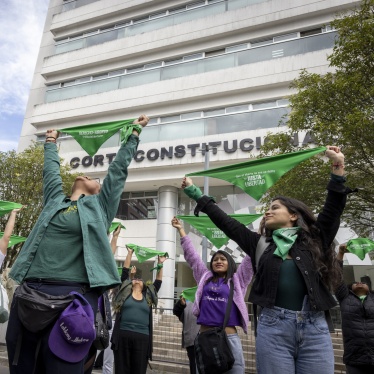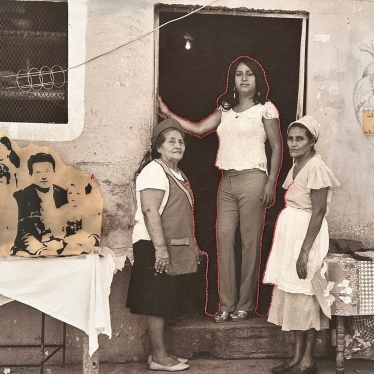(New York) – Venezuela’s abusive government is unfit to serve on the United Nations Human Rights Council, and UN member states should defeat its candidacy, Human Rights Watch said today. For years, Venezuela’s authorities have led a vicious crackdown on dissent and failed to address a self-inflicted humanitarian emergency that has sent more than 4.3 million Venezuelans fleeing the country.
“United Nations member countries should send a clear message to the Nicolás Maduro administration that they will not reward cruel and abusive policies that have destroyed the lives of millions of people with a seat on the UN’s top human rights body,” said José Miguel Vivanco, Americas director at Human Rights Watch. “Venezuela’s election would be an insult to a body whose members are supposed to uphold the highest human rights standards.”
On October 17, 2019, the UN General Assembly will elect 14 new members of the 47-country Human Rights Council for a three-year term beginning in January 2020. Until October 3, the Latin American and Caribbean regional group at the UN was offering only two candidates for two council seats – Venezuela and Brazil – virtually assuring them both of victory. With Costa Rica announcing on October 3 that it would compete for one of the two seats, members of the 193-nation General Assembly have an opportunity to deny a seat to Maduro’s representatives, Human Rights Watch said.
Venezuelan authorities are responsible for systematic human rights violations such as arbitrary arrests, torture of opponents, and abusive policing practices, including extrajudicial killings, Human Rights Watch said. They have also failed to address a devastating humanitarian emergency that it is largely responsible for creating. Its judiciary does not operate independently, and impunity for systematic violations is the norm. The result is a profound human rights crisis that has caused the largest exodus in recent Latin American history.
On September 27, the Human Rights Council adopted a resolution to create an independent fact-finding mission to investigate extrajudicial executions, enforced disappearances, arbitrary arrests, torture, and other cruel, inhumane, or degrading treatment committed in Venezuela since 2014. The resolution was put forward by Argentina, Brazil, Canada, Chile, Colombia, Guatemala, Guyana, Honduras, Paraguay, and Peru – members of the Lima Group that have led international efforts to pressure Venezuelan authorities to curb abuses.
Human Rights Council members have a duty to cooperate with the UN rights body, but Venezuela has already said that it rejects this resolution – a further demonstration that it is not fit for a council seat, Human Rights Watch said.
In July, the office of Michelle Bachelet, the UN high commissioner for human rights, issued a damning report on Venezuela. That report details abuses that are consistent with the findings of Venezuelan and international human rights organizations, and highlighted the need for accountability. The abuses include arbitrary arrests, torture, extrajudicial executions, and violations to the rights to food and health.
In February 2018, the International Criminal Court (ICC) prosecutor, Fatou Bensouda, announced the opening of a preliminary examination into the situation in Venezuela. In September 2018, the governments of Argentina, Canada, Chile, Colombia, Paraguay, and Peru asked the ICC prosecutor to investigate potential crimes against humanity in Venezuela since February 12, 2014. Costa Rica, France, and Germany later added their support to the submission.
In announcing his country’s candidacy, Costa Rican President Carlos Alvarado Quesada tweeted on October 3 that, “Due to the serious violations against human rights evidenced by the report of the High Commissioner for Human Rights, the Venezuelan regime is not the suitable candidate for the UN #HumanRights Council. #CostaRica is proposed as an alternative.” By contrast, Costa Rica has historically played a key role in advancing human rights within the region and through multilateral institutions, including during its past tenure on the Human Rights Council.
The other candidate for a seat is Brazil, whose president, Jair Bolsonaro, has embraced a rhetoric hostile to human rights norms. His government has effectively given a green light to criminal networks destroying the Amazon rainforest and intimidating and attacking forest defenders. Chronic human rights problems plague Brazil, including police violence and inhumane prison conditions. At the same time, while Venezuela routinely seeks to frustrate the Human Rights Council’s ability to address abuses, Brazil has supported numerous Council resolutions tackling a range of violations around the world.
UN General Assembly Resolution 60/251 asks that countries voting for members of the Human Rights Council “take into account the contribution of candidates to the promotion and protection of human rights.” This guidance applies to candidates’ efforts to protect and promote human rights in their own countries and abroad. Members of the Human Rights Council are supposed to “uphold the highest standards in the promotion and protection of human rights” and to “fully cooperate with the Council.”
“Not all Human Rights Council members are exemplary – far from it – but Venezuela is clearly beyond the pale,” Vivanco said. “Inviting Maduro’s representatives to undermine the Human Rights Council from within would be an affront not only to his government’s victims, but also to victims of human rights violations worldwide.”








